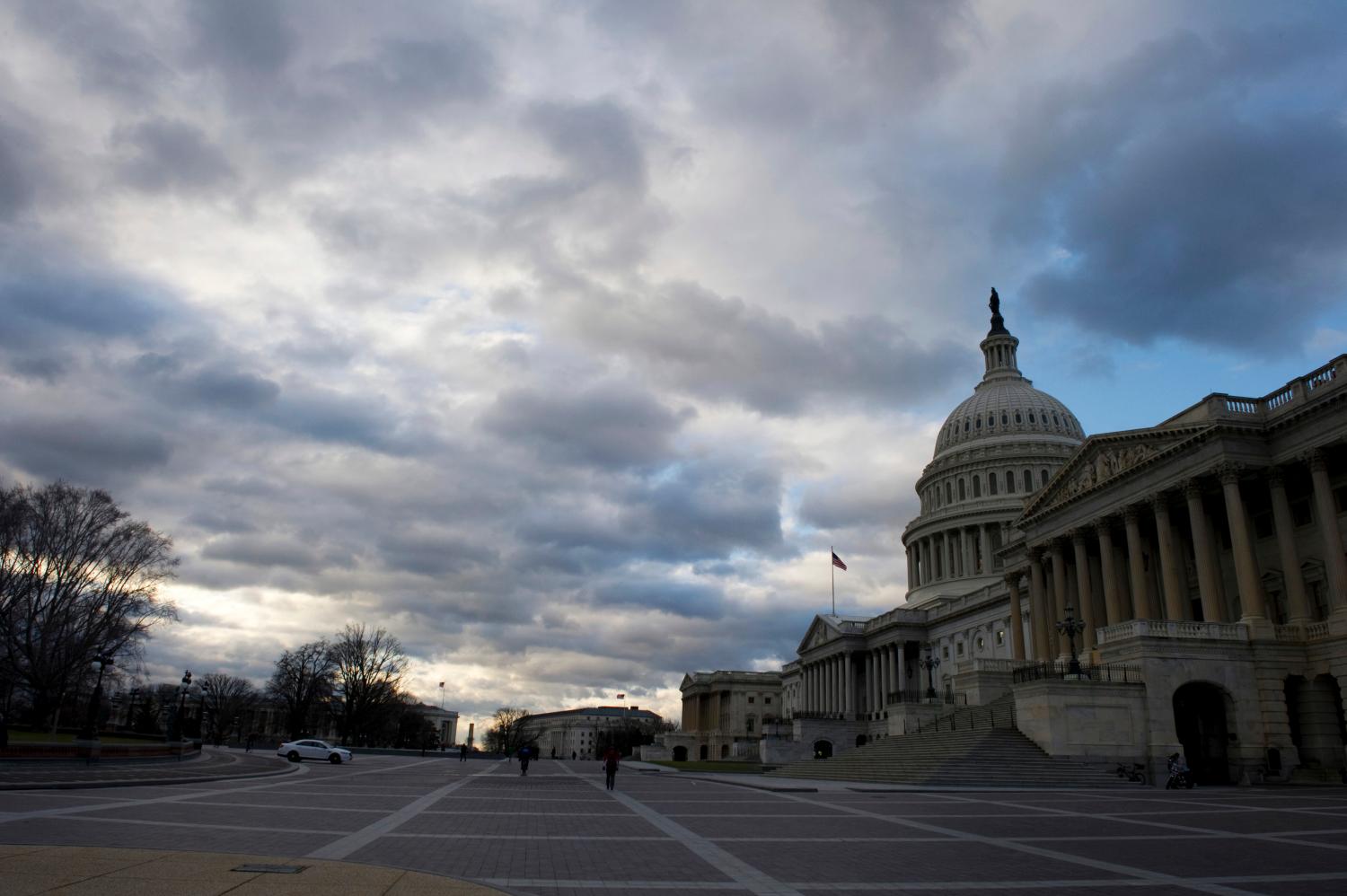The failure of the Houston-based Enron Corporation poses some of the toughest policy challenges of any financial collapse in recent memory. The current situation is not comparable to the savings and loan crisis or the banking disasters of the 1980s, which were nearly a decade in the making before Congress finally took action. By comparison, the disclosure problems that have surfaced in the Enron case have been apparent only in the past several years, especially the growing numbers of earnings restatements and the rising concern about “earnings management” expressed by the Securities and Exchange Commission (SEC) and others. More importantly, whereas in the savings and loan and banking cases there were clear policy options that Congress could implement (notably the system of prompt corrective action for enforcing capital standards), there are very few options in the current corporate crises, and there appears to be only a limited consensus on which ones ought to be adopted.
However, there are several steps lawmakers can take to ensure that the public is not left in the dark about a company’s financial health. In addition to continuing its extensive fact-finding mission on what happened at Enron, Congress should revisit rules on standards-setting in the accounting industry, tighten up enforcement and monitoring of accounting practices of both firms and their auditors, and make sure that any future laws give broad guidance to the SEC to allow for future developments in a rapidly changing corporate environment.
POLICY BRIEF #97
Improving the disclosure system is a complex task with few clear answers. According to former Federal Reserve Board Chairman Paul Volcker, now chairman of the trustees of the International Accounting Standards Board, the growing complexities of business-reflected in a dizzying array of new financial instruments and corporate organizational structures-pose increasingly difficult challenges for any system of disclosure. The fact is that for many kinds of transactions, there are no single “right” answers, which helps explain why the Financial Accounting Standards Board (FASB) often takes so long to set new standards or refine earlier ones, and why International Accounting Standards are framed in a more generic fashion. The lack of specifics allows accountants greater discretion in deciding how to justify various transactions.
As it considers how to improve the setting and enforcement of disclosure standards, Congress should be mindful that markets and regulators have already engaged in extensive “self-correction” in the wake of the Enron affair. A number of companies (including General Electric, America’s largest in terms of market capitalization) already have delivered more disclosure; corporate boards, and their audit committees in particular, are paying closer attention to accounting issues and the choice of auditors; accounting firms have tightened up on their audits; financial analysts and credit rating agencies, chastened by their past performance, have become more discriminating; and the SEC is apparently doing the best it can with limited resources to scrutinize corporate financial statements for possible problems.
What Should Congress Do?
So, is there any room left for Congress to act? One reason for it to do so is to ensure that market-driven improvements in disclosure remain in place after the furor over Enron dies down. Another reason for congressional action is that the Enron failure, coupled with several major accounting misadventures in earlier years, have exposed weaknesses in the disclosure system that call for correction.
But Congress should also tread carefully. Markets move fast, legislation does not. What gets adopted today will live for many tomorrows-until something new happens that motivates new legislation. For this reason, any legislation that Congress adopts should give broad guidance to the SEC, and in this way allow for significant flexibility for policy to adapt to constantly changing circumstances.
Accounting Standards
The immediate accounting problem exposed by Enron’s failure was the weak consolidation rule prescribed for highly leveraged “special purpose entities” (SPEs), or partnerships that were formed to carry out various projects whose assets and liabilities were not shown in Enron’s balance sheet. Enron failed in part because of losses arising out of the many SPEs that it had created.
The rule for some time has been that sponsors of an SPE need not consolidate it so long as outside investors contribute a majority of its capital and that investment constitutes at least 3 percent of the SPE’s assets. Leaving aside the fact that Enron appears to have misled its auditor, Andersen, about the amount of outside investments in SPEs (thus wrongfully avoiding consolidation), it is now clear that the 3 percent test was much too weak. FASB has since rightly raised the threshold to 10 percent.
The more difficult, larger issue relates to FASB’s standard-setting process itself. FASB is slow to set standards-although the incredibly quick revision to the SPE rule, announced in March, is a notable exception-and when it does, it is often subject to political interference. Changing the funding of FASB from its current practice of accepting voluntary contributions from accounting firms and companies to some sort of mandatory assessment system, as some have suggested, would solve neither of these problems, although it might diminish any perception that FASB must tailor its views to those of its funders.
FASB’s slow standard-setting could be addressed more directly by having the SEC impose deadlines on rule changes, with the threat that the SEC would take action on its own by a certain date if FASB did not, an idea floated by former SEC Chief Accountant Lynn Turner. Of course, the option of SEC taking over the standards-setting function is not ideal, because it could interfere with the other functions the commissioners perform and could not guarantee better outcomes. But the simple threat of occasional SEC rulemaking could be a powerful incentive for FASB to remain vigilant and act faster.
The downside of more active SEC involvement, however, is that it could result in even greater political interference in FASB’s activities than already exists. There is a respectable view that politics is inherent in any rulemaking process, including the setting of accounting standards, and thus it is something that the public should accept. At the same time, however, the main purpose of accounting standards-at least for publicly held companies-is to protect the interests of investors, not accountants and not the firms themselves. Accounting standards should help investors understand all relevant financial facts that will enable them to make projections about future cash flows. Where the standards are altered or not implemented out of concern for affected firms rather than investors, the outcome may not be socially desirable. In theory, putting more investor or public representatives on FASB could help rectify the imbalance. In practice, however, if Congress wants the rules to benefit narrow interests, then there is little that even a more balanced FASB can do.
Similarly, moving the standards-setting function to the SEC is not a panacea because Congress still oversees the SEC. The same would be true if FASB members were chosen directly by the Commission. As long as the SEC oversees FASB in some way and Congress oversees the SEC, it is virtually impossible to remove politics from accounting standards-setting.
In principle, the only option that would have a chance of at least making some difference is to move standard-setting to an international body like the International Accounting Standards Board and thus accept international accounting standards (IAS), which the United States thus far has refused to do, largely out of the belief that U.S. Generally Accepted Accounting Principles (GAAP) is superior to IAS. This is not the rationale for moving to international standards that is typically cited. Instead, the case for IAS rests largely on the view that a single set of accounting standards worldwide would eliminate discrepancies in accounting standards across countries, thereby facilitating cross-border movement of capital. In addition, removing sources of uncertainty generated by differences in national accounting conventions should reduce the cost of capital. In the wake of Enron, others also have argued that a system like the IAS that allows accountants more discretion is superior to the heavily rules-based system of U.S. GAAP, which seemingly invites circumvention.
But perhaps the most important potential advantage of replacing U.S. GAAP with IAS is that it would dilute the political power of narrow interests in this country to influence the outcome of the standard-setting process. Take, for example, the fight over expensing stock options, which FASB was about to implement several years ago before it was stopped by a powerful lobbying campaign from the U.S. high-tech community. If standards were set solely by the IASB, our high-tech firms would make their views felt, but they could well run into significant opposition from standard-setters from other countries. Unfortunately, it is for just this reason that moving toward IAS would almost certainly arouse strong opposition in this country.
A better approach would be “constrained competition” in standard-setting. Under this approach-which appears to be gathering greater support within the academic community-U.S. law would give firms listing their shares on our stock exchanges a choice between using U.S. GAAP or IAS. Once some of the key differences between the standards are substantially narrowed, there would be no need for firms that choose IAS to undergo the expense of reconciling the differences between the two standards. The remaining differences between the standards would continue to exist, but would be of lesser magnitude. Then the two standards would simply compete, but the discrepancies would not be so large as to produce widely divergent results for most companies. In that way, investors would get the benefits of both greater harmonization (but not complete identity) of the two standards and the benefits of competition.
Enforcement
However much accounting standards may be perfected, investors will not be protected if auditors do not properly enforce the standards. In light of the rising numbers of auditing problems in recent years, culminating with Andersen’s widely publicized failures with respect to its audit of Enron, attention has been focused on verification of financial statements. Policymakers should concentrate on two basic approaches, which are not mutually inconsistent, but ideally should be reinforcing: improved monitoring or oversight of auditors and improved incentives for auditors to carry out their work properly.
Monitoring
The most frequently discussed reform of the existing enforcement system is the creation of an independent body reporting to the SEC that would set and enforce auditing standards. SEC Chairman Harvey Pitt has outlined, and the Bush administration has basically endorsed, a proposal for a new Public Regulatory Board (replacing the previous Public Oversight Board) that would have authority to set auditing standards and to investigate and punish wayward auditors, even while charges are pending. Most of the members of the PRB would be independent of the accounting industry, while the functions of the Board would be financed by assessments on accountants and the firms they audit. Critics have said the proposal does not go far enough.
A better option, for a number of reasons, is to lodge the investigation and enforcement functions within the SEC, while leaving the preparation and refinement of audit standards for the auditing profession to an organization like the PRB.
First, proponents of an independent body cannot credibly assert that the job of overseeing auditors is more complex than overseeing the stock exchanges, investigating fraud or insider trading, or carrying out the rest of the Commission’s statutory agenda. If the reason for contracting out the supervision of auditors is that the SEC is short of staff and resources, as it clearly is, there is an easy answer to that problem: give it the necessary resources and finance it by an assessment on accounting firms, the firms they audit, and/or investors.
If the reason for creating an independent board is to shelter it from political interference, then that argument is not sufficiently compelling. The SEC has effectively contracted out the setting of accounting standards to the FASB, but that has not prevented affected interests from influencing what the FASB does. In fact, precisely because enforcement is an inherent government function that is carried out for other industries by federal agencies, Congress quite properly exercises its oversight responsibilities over those enforcement efforts. It would be no different if the SEC were to oversee the auditing profession directly.
The only potentially plausible argument for creating the PRB is that the enforcement of auditing standards requires an understanding of the intent behind the standards, and so the two functions should be lodged in the same organization. And since the thought of having the SEC write audit standards seems to many like a non-starter, better to have both jobs carried out by an entity like the PRB under the SEC’s oversight. But this too, is faulty logic. Many regulatory agencies write complex rules that they then enforce, so SEC could do both. Or it could rely on an entity like the PRB, which it would oversee, to write a first draft.
A number of incentives for auditors to perform their jobs already exist, but they must be improved. Auditors care about their reputations and certainly care about their liability exposure. A problem with liability-based incentives, however, is that they can lead to excessive caution as an understandable reaction to the threat of going out of business. The Bush administration has come up with an eminently sensible idea. It proposed that CEOs repay any earnings-based bonuses if companies have to restate their earnings.
Another frequently mentioned proposal is to prohibit auditors from doing consulting and other types of non-audit work for their audit clients. Some have suggested going further and limiting auditing firms only to audit work for all their clients. The rationale for these various limitations, of course, is to remove any incentives that auditors may have to compromise their audits in the hope of holding onto lucrative non-audit business.
As long as management continues to choose the auditor, however, the potential will always exist for a conflict that could compromise the quality of the audit. One possible solution is to intensify oversight of auditors for precisely this reason, as already discussed. The other is to mandate that managers of publicly held companies be prohibited from choosing their auditors and placing that responsibility instead within audit committees which serve on boards of directors. An additional protection would ensure that all members of the audit committee remain independent.
The Accounting Industry Post-Enron
One issue that has received relatively little public discussion in the wake of Enron’s failure is how policymakers should approach the possibility that the company’s auditor, Andersen will be forced out of business. If the cases against Andersen are not settled and clients continue to leave the firm, it is conceivable that at some point the “Big Five” accounting firms could shrink to the “Big Four.” This could happen despite the best efforts of Paul Volcker-now acting as an Andersen adviser-to save the firm. Policymakers should be concerned about the possibility that the accounting industry, which is already highly concentrated, would become more so. Thousands of publicly held companies would have a more limited choice of auditors than they do now, and less competition could breed higher prices and lower quality of auditing services.
Since this could happen without a merger, there is effectively no role for antitrust to play to ensure no diminution in competition. The only other way that competition would not diminish if Andersen failed or dwindled in size is if new entrants were attracted to the auditing business, existing second-tier accounting firms captured more audit clients, or the major accounting firms split up voluntarily. At the very least, policymakers should signal their openness to entry and the use of second-tier accounting firms.
The only other way in which policymakers might be able to make a real contribution is to remove any legal restrictions (regulatory, tax, or otherwise) that may now impede foreign accounting networks from gaining the requisite licenses and competing in the United States. At a minimum, Congress should inquire of the SEC whether any such restrictions-formal or informal-now exist at either the federal or state levels. If such impediments exist, the SEC-or Congress, if necessary-should remove them quickly.
Beyond Enron
There are a range of issues relating to disclosure that have little to do with Enron, that may have received more attention had the company’s failure not happened, and that should eventually get that attention once the preoccupation with fixing what apparently went wrong with Enron and other recent accounting affairs diminishes. These include measures of consumer or worker satisfaction, product or service quality, successful innovation, education and experience of the workforce and management, and a variety of other non-financial indicators. Individually or collectively, these non-financial measures may shed far more light for investors on the future ability of firms to generate earnings or cash flow, and thus on the long-run fundamental value of their stock, than the figures in financial statements that are based on historical costs that inherently look backward.
The SEC should use its powers of persuasion in this area, perhaps by beginning to convene working groups of experts from different industries, to encourage firms to make more of these disclosures, and to do so consistently.
Another cutting edge issue is how best to harness the power of technology to facilitate more complete and more rapid corporate disclosure. One large-scale and potentially revolutionary private sector initiative that already is under way is a collaboration by a growing number of companies, accounting firms, and the American Institute of Certified Public Accountants to develop a common “tagging” system for various financial accounts, which goes under the acronym “XBRL.” Once these tags are fully developed and implemented by companies, a wide range of users-not just sophisticated users like financial analysts-will be easily able to take detailed data from companies and reconfigure it in multiple ways, using widely available spreadsheet computer programs. The SEC should encourage this project and encourage companies to participate in the process of developing tags for information that may be industry-specific.
Daily Financial Reports?
Using the Internet, many companies now or may soon have the ability to make their financial reports available to the public much more frequently than once a quarter. Indeed, financial institutions typically balance their books every night. Why not consider ways to have this financial information communicated to the public in the same time frame?
There will be objections to encouraging companies to make available frequent and unaudited financial information, but these objections can be met. Currently, quarterly financial data are unaudited and will remain that way unless the SEC or a new PRB come up with guidelines for more limited audits of data that is more frequently reported. In any event, the capital markets would become much more volatile if investors came to believe that all unaudited financial information was useless.
There is an even more compelling case for more frequent financial disclosures. Former SEC Chairman Arthur Levitt was one of the first to sound the alarm about the seemingly uncontrollable trend toward earnings management-or the manipulation of quarterly earnings reports to achieve or exceed market expectations, which is evidenced by the significant increase in earnings restatements over the past few years. If, however, companies routinely reported their financial results more frequently than every quarter, it is conceivable that investors and analysts would lose interest in the quarterly figures. Furthermore, it is highly doubtful that analysts would take the trouble to develop earnings forecasts more frequently than on a quarterly basis. Thus, there is a real chance that more frequent reporting could end incentives of managers-and their auditors-to engage in earnings management. The challenge is to find a way to provide incentives to the firms that are able to report more frequently than quarterly to do so.
“Plain English” Reports
The rude awakening prompted by the Enron failure has triggered several positive steps. Congress has begun to explore ways to improve financial literacy among the American public. The public has learned the most basic of all financial lessons: diversification, especially in pension plans, is crucial. The Bush administration has proposed that companies be required to write their quarterly financial reports in “plain English,” which should improve information flow to investors.
In the end, no amount of rule-writing or editing by the SEC relating to these plain English statements is likely to prevent future Enrons from deceiving investors. Accomplishing that goal will require implementing several of the measures outlined here.
The Brookings Institution is committed to quality, independence, and impact.
We are supported by a diverse array of funders. In line with our values and policies, each Brookings publication represents the sole views of its author(s).




